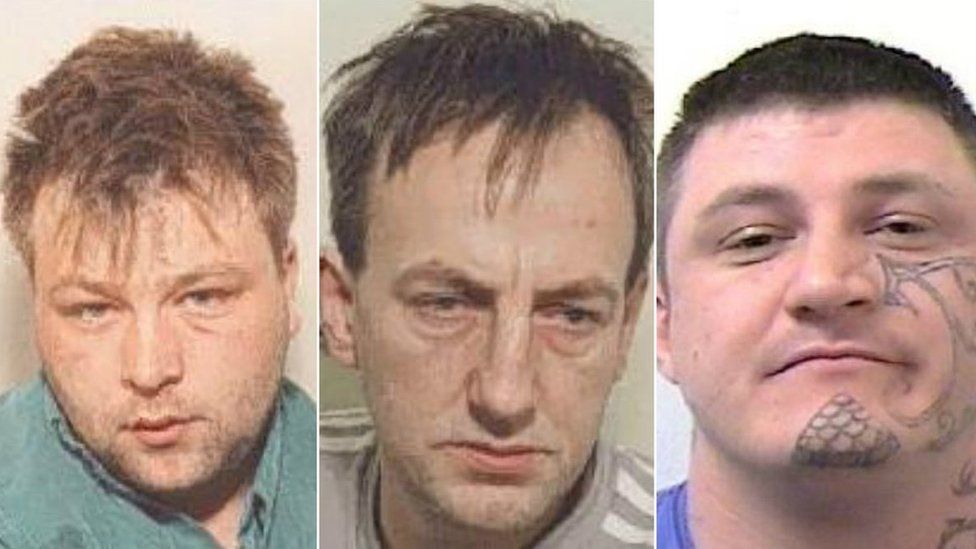Killer Stephen Nisbet ran £1m heroin ring from cell
- Published

A convicted killer has been found guilty of running a £1m heroin ring from his prison cell in Edinburgh.
The High Court in Glasgow heard how Stephen Nisbet, 40, used a secret stash of mobile phones to arrange drug deals across Scotland from HMP Edinburgh.
His brother James Nisbet, 46, set up a recycling firm in Shotts as a front to help flood the country with heroin.
The pair were found guilty of supplying heroin. Five others, who acted as couriers, were also convicted.
They were Ronald Harrison, 52, Allan Holland, 38, John McMahon, 27, David Milne, 34 and Robert Borland, 35.
The seven men were caught after the seizure of about £1.1m worth of heroin and about £56,000 worth of amphetamine.
Stephen Nisbet is already serving an 18-year sentence after being convicted of murdering David James in 2003.
Recycling firm
The court heard that he had access to mobile phones with up to 10 different numbers which enabled him to set-up what prosecutors called "a family drug dealing business" from his HMP Edinburgh cell between June 2013 and January last year.
His elder brother James formed a firm called Platinum Waste Solutions - near the family cottage in Shotts, North Lanarkshire.
But the trial heard this was a "front" to distribute heroin throughout the country.
Police found out about the operation and watched as drug deals were carried out across Scotland - including in Dundee, Fife and Lanarkshire.
James Nisbet denied that his company was involved in anything criminal and claimed police were "mistaken" when they saw him with a courier in December 2013.
He also insisted that another meeting with a man linked to the brothers was to discuss the sale of a van.
And he said a visit to the home of associate Harrison was to buy a dog on behalf of his brother.
This was despite him being seen with a drugs consignment that he had hidden under the bonnet of his vehicle.
He also claimed he had not visited his brother Stephen in prison for a number of years.
But, in his closing speech to the jury, prosecutor Ian Wallace said the Nisbets were the "main players" in the crime.
Mr Wallace added: "This was a very large drug supply operation - organised and operated from Edinburgh prison."
He went on: "Stephen Nisbet was controlling - he was using phones that were orchestrating what was happening outside."
The Nisbets were each convicted of three charges including supplying heroin and "directing others to commit a serious offence".
'Scourge on community'
Harrison and Holland were also found guilty of being concerned in the supply of heroin although they had lesser roles.
McMahon, Milne and Borland all admitted related drug charges.
All seven men were remanded in custody.
Judge Lord Armstrong adjourned sentencing until next month.
Det Ch Insp Colin Boyle, of Police Scotland's Organised Crime and Counter Terrorism Unit, said: "Nisbet and his associates ran a drug empire throughout Scotland. Operation Lapstone did not just disrupt this empire - it dismantled it.
"The sale and use of illegal substances is a scourge on our community and is a top priority for Police Scotland.
"We will not tolerate this type of anti-social behaviour and we will continue to hold those who peddle drugs in our community to account and bring them to justice."
Stephen Nisbet, now in Shotts Prison, was jailed for a minimum 18 years in 2003 for his part in the murder of 37-year-old David James.
Mr James was thrown from a first-floor window of a flat in Wishaw, North Lanarkshire, before being bludgeoned to death.
A judge told Nisbet at the time that he had committed "the most brutal murder".
Two other men were also jailed for the killing.